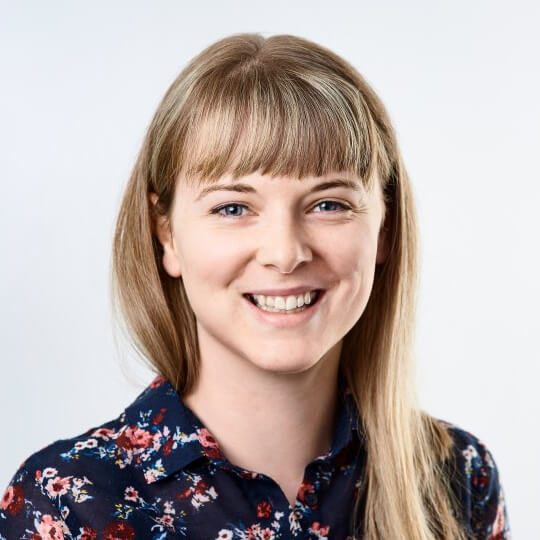Meet The School Using Technology To Attract Parents, Future-Proof Students And Encourage Collaboration
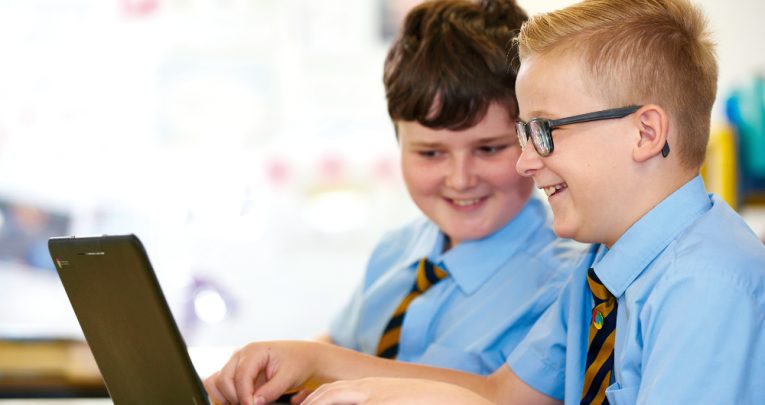
"We're happy to look outside the box"

For a school that is situated on Sunny Road and is painted sky blue, it seems only fitting that it is also one of the country’s first primaries to become completely cloud-based. Vice principal and computing leader Adam Stainsbury explains: ‘One of the first things I looked at doing when I joined this school was decommissioning our ICT suite and server. Now, all the children’s work and staff documents are stored in Google Drive.’
For those uninitiated to cloud-based computing, Google Drive allows staff and students at Westerings to store and share all their files online for free, as opposed to relying on a local server. ‘One major benefit is that anything can be accessed 24 hours a day from anywhere in the world,’ Adam continues. ‘It has also saved us over £30,000 over the next five years – money that would have been spent on replacing computers, buying a new server and the technical support needed to maintain it.’
Scarlett
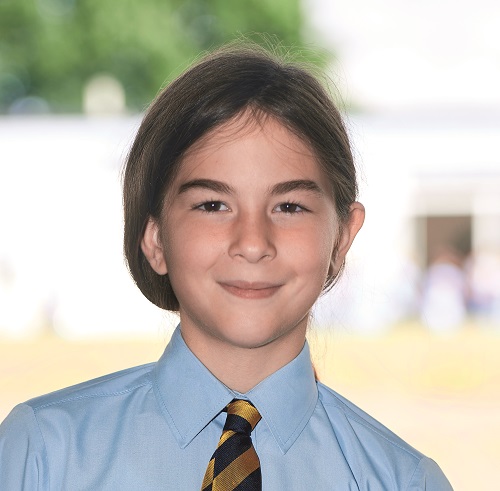 We go outside and do forest school. If it rains we get to build little dens. Mrs Collier made a big one out of tarpaulin that we can sit under and still do all the activities if it’s wet.
We go outside and do forest school. If it rains we get to build little dens. Mrs Collier made a big one out of tarpaulin that we can sit under and still do all the activities if it’s wet.
Teacher voice
Claire Gaya, Y3 teacher & maths leader
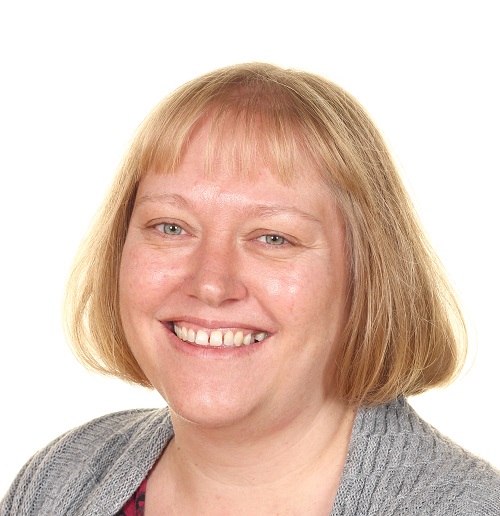 The children have mixed ability talk partners who they sit with all week for every lesson. The partners change once a week. I started doing this about six years ago – just me on my own in my classroom. Over the course of the next two or three years it got rolled out and made compulsory across the whole school. We’re actively encouraged to embrace new ways of working and try new things. We don’t feel like we’re going to be questioned by senior management or get into trouble if it doesn’t work out.
The children have mixed ability talk partners who they sit with all week for every lesson. The partners change once a week. I started doing this about six years ago – just me on my own in my classroom. Over the course of the next two or three years it got rolled out and made compulsory across the whole school. We’re actively encouraged to embrace new ways of working and try new things. We don’t feel like we’re going to be questioned by senior management or get into trouble if it doesn’t work out.
Adam Stainsbury, vice principal & computing leader
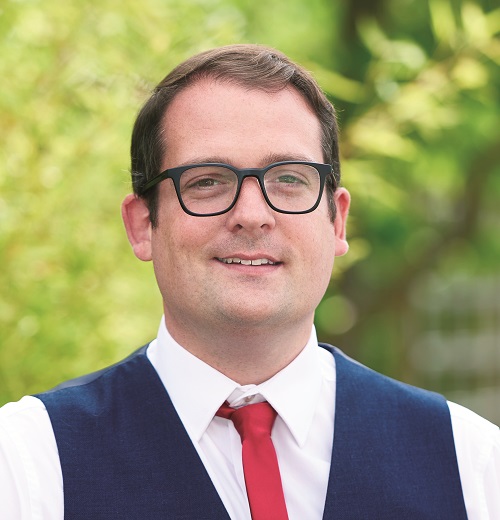 At Westerings we have lots of traditions that have been going on for years. We’re one of the only schools in the area that still runs an annual conker competition. We also have annual ceremonies for our children where we hand out awards and trophies that have been in our cabinet for 20, 30 years. We have several staff who are either ex-pupils or have children at the school themselves. We’re well-known within the local community and support annual events within it. For instance, our children go and sing at the Christmas lights switch-on every year.
At Westerings we have lots of traditions that have been going on for years. We’re one of the only schools in the area that still runs an annual conker competition. We also have annual ceremonies for our children where we hand out awards and trophies that have been in our cabinet for 20, 30 years. We have several staff who are either ex-pupils or have children at the school themselves. We’re well-known within the local community and support annual events within it. For instance, our children go and sing at the Christmas lights switch-on every year.
Gemma Woods, Y3 teacher & phonics leader
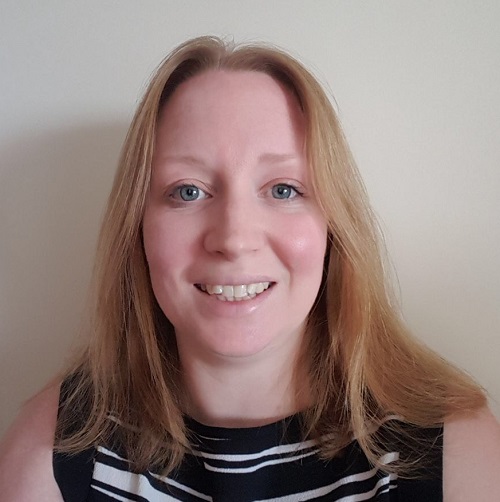 Two-week half terms are nice for me because I’ve got two little ones. I can do my planning and my classroom then have a week for myself. The children are more refreshed when they come back – a week’s just not long enough.
Two-week half terms are nice for me because I’ve got two little ones. I can do my planning and my classroom then have a week for myself. The children are more refreshed when they come back – a week’s just not long enough.
Heidi Jaeckel, Y1 teacher
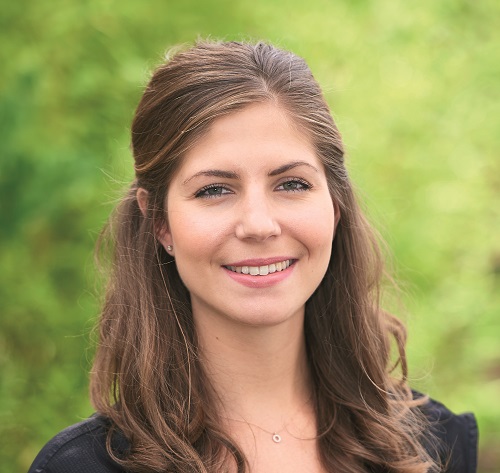 In my Y1 class we’ve been using the Chromebooks a lot more recently. The children have been learning to research, copy and paste images and make leaflets, and we’ve been incorporating this into English and maths lessons too.
In my Y1 class we’ve been using the Chromebooks a lot more recently. The children have been learning to research, copy and paste images and make leaflets, and we’ve been incorporating this into English and maths lessons too.
Liz continues, ‘This approach is much more individualised and really helps children with their self-esteem and confidence, and this extends across the school. Our attitude is, if you fail it doesn’t matter – tweak it, try something else or find a different thing that works. It’s about doing the best we can do for the children as individuals.’
Pupil voice
Jamie
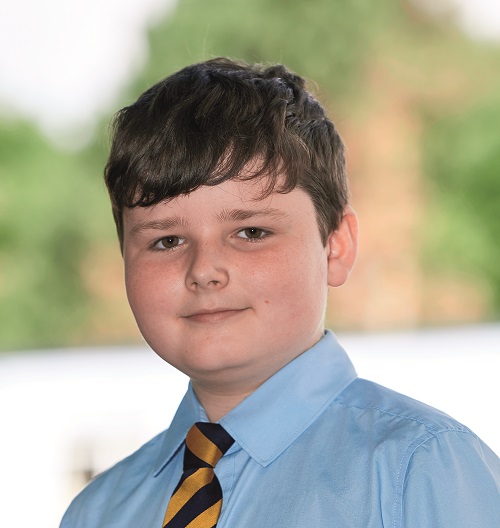 I’m a digital leader at Westerings which means I help with the computers and Chromebooks. The digital leaders are usually the ones who wheel them around to the different classrooms and sometimes we help the teachers.
I’m a digital leader at Westerings which means I help with the computers and Chromebooks. The digital leaders are usually the ones who wheel them around to the different classrooms and sometimes we help the teachers.
Minnie
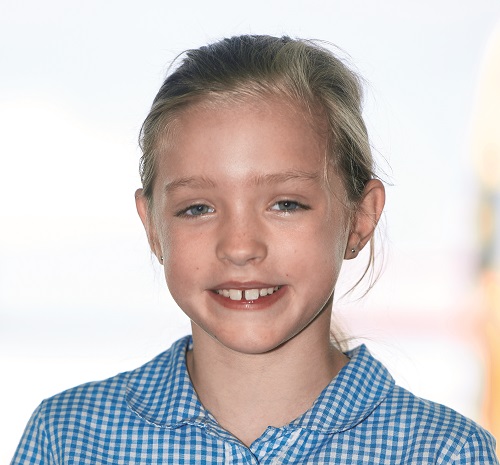 We don’t really get bullying in this school because everyone likes to help each other. In most assemblies we talk about using kind words, perseverance and other things that we should try and remember while we’re in school.
We don’t really get bullying in this school because everyone likes to help each other. In most assemblies we talk about using kind words, perseverance and other things that we should try and remember while we’re in school.
Justin
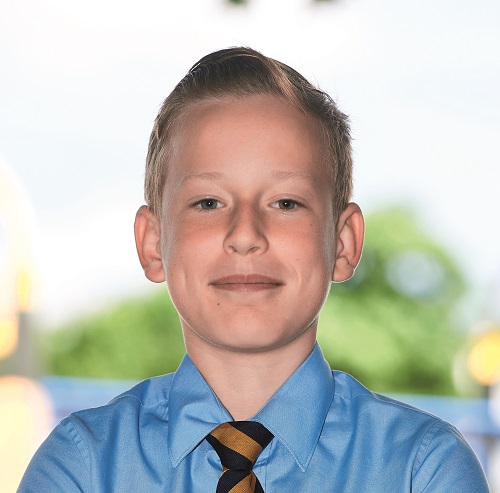 We get a week longer on two of our half term holidays and one week less in the summer holidays. If you have a brother or sister at Greensward, the secondary school, it means you have the same holidays.
We get a week longer on two of our half term holidays and one week less in the summer holidays. If you have a brother or sister at Greensward, the secondary school, it means you have the same holidays.
Scarlett
 We go outside and do forest school. If it rains we get to build little dens. Mrs Collier made a big one out of tarpaulin that we can sit under and still do all the activities if it’s wet.
We go outside and do forest school. If it rains we get to build little dens. Mrs Collier made a big one out of tarpaulin that we can sit under and still do all the activities if it’s wet.
Teacher voice
Claire Gaya, Y3 teacher & maths leader
 The children have mixed ability talk partners who they sit with all week for every lesson. The partners change once a week. I started doing this about six years ago – just me on my own in my classroom. Over the course of the next two or three years it got rolled out and made compulsory across the whole school. We’re actively encouraged to embrace new ways of working and try new things. We don’t feel like we’re going to be questioned by senior management or get into trouble if it doesn’t work out.
The children have mixed ability talk partners who they sit with all week for every lesson. The partners change once a week. I started doing this about six years ago – just me on my own in my classroom. Over the course of the next two or three years it got rolled out and made compulsory across the whole school. We’re actively encouraged to embrace new ways of working and try new things. We don’t feel like we’re going to be questioned by senior management or get into trouble if it doesn’t work out.
Adam Stainsbury, vice principal & computing leader
 At Westerings we have lots of traditions that have been going on for years. We’re one of the only schools in the area that still runs an annual conker competition. We also have annual ceremonies for our children where we hand out awards and trophies that have been in our cabinet for 20, 30 years. We have several staff who are either ex-pupils or have children at the school themselves. We’re well-known within the local community and support annual events within it. For instance, our children go and sing at the Christmas lights switch-on every year.
At Westerings we have lots of traditions that have been going on for years. We’re one of the only schools in the area that still runs an annual conker competition. We also have annual ceremonies for our children where we hand out awards and trophies that have been in our cabinet for 20, 30 years. We have several staff who are either ex-pupils or have children at the school themselves. We’re well-known within the local community and support annual events within it. For instance, our children go and sing at the Christmas lights switch-on every year.
Gemma Woods, Y3 teacher & phonics leader
 Two-week half terms are nice for me because I’ve got two little ones. I can do my planning and my classroom then have a week for myself. The children are more refreshed when they come back – a week’s just not long enough.
Two-week half terms are nice for me because I’ve got two little ones. I can do my planning and my classroom then have a week for myself. The children are more refreshed when they come back – a week’s just not long enough.
Heidi Jaeckel, Y1 teacher
 In my Y1 class we’ve been using the Chromebooks a lot more recently. The children have been learning to research, copy and paste images and make leaflets, and we’ve been incorporating this into English and maths lessons too.
In my Y1 class we’ve been using the Chromebooks a lot more recently. The children have been learning to research, copy and paste images and make leaflets, and we’ve been incorporating this into English and maths lessons too.
In its latest Ofsted inspection, held earlier this year, the school’s personal development, behaviour and welfare was rated outstanding. ‘We know our students well and if a child is not achieving as highly as they should be, it gets picked up quickly,’ says Liz. ‘We treat the children as if they were our own and don’t just focus on test results. We really want the best for those individual children, we want the best for them in their lives. For parents, their child is their priority, and they need to feel that their child is our priority too.’
Individual approach
‘For four or five years we’ve had no ability groups,’ explains principal Liz Atay. ‘In every lesson the three levels of differentiation are there for all the children to see – we call them ‘challenge’, ‘extreme challenge’ and ‘ultimate challenge’.
Our children don’t go into a maths lesson thinking, ‘Oh, I’m rubbish at this’ or ‘I’ve got to sit at the red table because I can’t do it.’ With a subject like maths, there are so many different areas to cover. A child may struggle with division but be amazing at shape and space. Our approach gives the children the chance to try things. We don’t have the situation where a child gets to the end of a lesson and has got a page full of ticks because they’ve done it all right.
If they can do it and they’re doing really well, then they can say, ‘Actually, I’m going to try some of the harder ones now”. Y3 teacher Claire Gaya adds, ‘The children want to challenge themselves and don’t just go for the easy option. A lot of schools might say, ‘Oh no, that won’t work’, but we don’t really have that attitude. We’re more like, ‘Let’s give that a go”.
Liz continues, ‘This approach is much more individualised and really helps children with their self-esteem and confidence, and this extends across the school. Our attitude is, if you fail it doesn’t matter – tweak it, try something else or find a different thing that works. It’s about doing the best we can do for the children as individuals.’
Pupil voice
Jamie
 I’m a digital leader at Westerings which means I help with the computers and Chromebooks. The digital leaders are usually the ones who wheel them around to the different classrooms and sometimes we help the teachers.
I’m a digital leader at Westerings which means I help with the computers and Chromebooks. The digital leaders are usually the ones who wheel them around to the different classrooms and sometimes we help the teachers.
Minnie
 We don’t really get bullying in this school because everyone likes to help each other. In most assemblies we talk about using kind words, perseverance and other things that we should try and remember while we’re in school.
We don’t really get bullying in this school because everyone likes to help each other. In most assemblies we talk about using kind words, perseverance and other things that we should try and remember while we’re in school.
Justin
 We get a week longer on two of our half term holidays and one week less in the summer holidays. If you have a brother or sister at Greensward, the secondary school, it means you have the same holidays.
We get a week longer on two of our half term holidays and one week less in the summer holidays. If you have a brother or sister at Greensward, the secondary school, it means you have the same holidays.
Scarlett
 We go outside and do forest school. If it rains we get to build little dens. Mrs Collier made a big one out of tarpaulin that we can sit under and still do all the activities if it’s wet.
We go outside and do forest school. If it rains we get to build little dens. Mrs Collier made a big one out of tarpaulin that we can sit under and still do all the activities if it’s wet.
Teacher voice
Claire Gaya, Y3 teacher & maths leader
 The children have mixed ability talk partners who they sit with all week for every lesson. The partners change once a week. I started doing this about six years ago – just me on my own in my classroom. Over the course of the next two or three years it got rolled out and made compulsory across the whole school. We’re actively encouraged to embrace new ways of working and try new things. We don’t feel like we’re going to be questioned by senior management or get into trouble if it doesn’t work out.
The children have mixed ability talk partners who they sit with all week for every lesson. The partners change once a week. I started doing this about six years ago – just me on my own in my classroom. Over the course of the next two or three years it got rolled out and made compulsory across the whole school. We’re actively encouraged to embrace new ways of working and try new things. We don’t feel like we’re going to be questioned by senior management or get into trouble if it doesn’t work out.
Adam Stainsbury, vice principal & computing leader
 At Westerings we have lots of traditions that have been going on for years. We’re one of the only schools in the area that still runs an annual conker competition. We also have annual ceremonies for our children where we hand out awards and trophies that have been in our cabinet for 20, 30 years. We have several staff who are either ex-pupils or have children at the school themselves. We’re well-known within the local community and support annual events within it. For instance, our children go and sing at the Christmas lights switch-on every year.
At Westerings we have lots of traditions that have been going on for years. We’re one of the only schools in the area that still runs an annual conker competition. We also have annual ceremonies for our children where we hand out awards and trophies that have been in our cabinet for 20, 30 years. We have several staff who are either ex-pupils or have children at the school themselves. We’re well-known within the local community and support annual events within it. For instance, our children go and sing at the Christmas lights switch-on every year.
Gemma Woods, Y3 teacher & phonics leader
 Two-week half terms are nice for me because I’ve got two little ones. I can do my planning and my classroom then have a week for myself. The children are more refreshed when they come back – a week’s just not long enough.
Two-week half terms are nice for me because I’ve got two little ones. I can do my planning and my classroom then have a week for myself. The children are more refreshed when they come back – a week’s just not long enough.
Heidi Jaeckel, Y1 teacher
 In my Y1 class we’ve been using the Chromebooks a lot more recently. The children have been learning to research, copy and paste images and make leaflets, and we’ve been incorporating this into English and maths lessons too.
In my Y1 class we’ve been using the Chromebooks a lot more recently. The children have been learning to research, copy and paste images and make leaflets, and we’ve been incorporating this into English and maths lessons too.
Not having to rely on that ageing server has sped things up considerably. ‘It used to take nine minutes for the computers in the suite to log on,’ laughs principal Liz Atay. ‘Having equipment that is up-to-date and reliable is essential.’
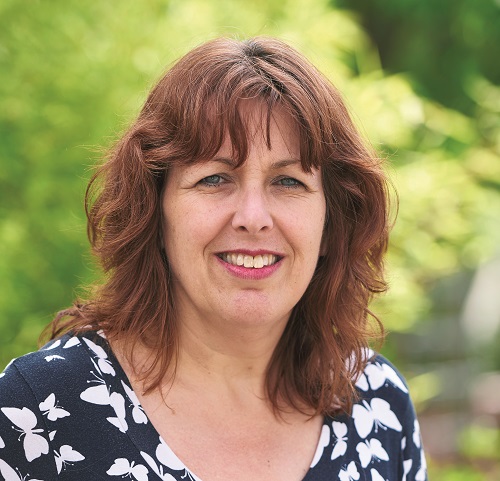 Name: Westerings Primary Academy
Headteacher: Liz Atay
Location: Hockley, Essex
Ofsted rating: Good
Size: 250+ pupils
Extra info: One of the first primaries in the country to become an academy
Name: Westerings Primary Academy
Headteacher: Liz Atay
Location: Hockley, Essex
Ofsted rating: Good
Size: 250+ pupils
Extra info: One of the first primaries in the country to become an academy
1. Global audience
Every Westerings child from Y3 upwards curates their own personal learning web page, as Adam explains. ‘Through Google’s apps for education – G Suite – the children have access to cloud-based services such as Google Docs, Drive and Sites. The children’s learning websites are like an online blog containing their English, maths, science – all the things they’re doing. If they’re making videos in English they can embed them, if they’ve written a story about blood cells in science they can incorporate that.
Ultimately, seven billion people can see our children’s websites, whereas only a handful of people ever get to see their books. That gives the children an audience and a purpose for writing. Because it’s going to be seen by such a wide audience, they have to give their work extra special attention.’
Being able to access their work outside the school gates also means that the school day no longer has to end at the traditional time either. ‘When children are at home at six o’clock at night, they can share their work with their best friend, ask for help and get ideas from their classmates,’ says Adam. ‘Because they’re so excited and engaged with their work, they go home and continue that in their bedrooms. Their collaboration is phenomenal.’
With online interactions making up part of a typical day for their students, online safety is at the forefront of the team’s minds. ‘We’re trying to teach our children technical skills, but also the knowledge of how to keep themselves safe online,’ Adam says. ‘Technology is one of the most engaging ways that we can involve our pupils in education, but we are under no illusion that children are going to be using social media, emails, blogs, online forums and games at home, whether it’s now or in five years time. We want to give them access to this world now, in a safe way, so we can monitor and encourage the correct use of these different facilities, so when they do leave us they are confident and responsible users of digital media.’
With children arriving at Westerings in Reception already being able to use an iPad confidently, it seems a no-brainer to tap into their enthusiasm by introducing technology into the classroom as much as possible. Adam says, ‘Staff have seen the amount of pupil engagement in lessons that involve ICT. They see it as an opportunity to enhance their lessons.’ Liz adds, ‘It’s also been very good for our boys. We’re very boy-heavy and the technology is great for engaging them. They perhaps don’t associate what they’re doing with sitting down and writing, so they’re much more motivated.’
Introducing staff to new ways of working digitally was hard to start with, Liz notes. ‘Some people had more skills than others, and although we had training, unless you use something constantly you forget how to do it.’ Help is at hand for any baffled staff because the school has been nurturing a team of student ‘digital leaders’ to assist when things go wrong.
‘Our digital leaders our children in the school who have an interest in ICT,’ explains Adam, ‘and they support staff as well as students. They’ve created digital citizenship awards and online quizzes for our children to access so that by the time the children leave us in Y6, they can demonstrate that they’ve got a good understanding of how to use social media safely and effectively and have cyber bullying awareness.’ Adam continues, ‘We have a very open-minded staff who are willing to learn new skills. Not one teacher has said, ‘I’d rather not get involved with this.’ Instead, everyone has said, ‘I’d like to do this. Can you show me how?”
Flexibility has been key in getting everyone in the school on board, as Adam explains. ‘Teachers who prefer Microsoft Office still use it, but staff naturally adapt. Our teaching assistants now use Google Docs at home because they see that as an easier or better option. We give our staff the freedom to use the platform that’s right for them – whether that’s Android, Apple, Microsoft or Google.’
Future-proofing the children and giving them the skills they’ll need to survive in a tough jobs market is a key concern. Adam says, ‘In a world where our children are going to be completing their CVs online and doing the majority of their work on a computer, it’s important we teach these skills.’ Liz adds, ‘In real life you don’t just use a computer for an hour a week. It’s part of our everyday lives.’
2. Confidence through sport
If all this tech talk has you imagining classrooms full of pale mini Zuckerbergs, hunched over screens from dawn to dusk, think again. Data from height and weight measurements in Reception and Y6 have shown that pupils’ health at Westerings improves during their time at the school, bucking the nationwide trend. ‘It’s not all down to us, we do have some very sporty families’, concedes Liz, ‘but sport is a big focus for us. It’s all about attitude, about the children knowing that even if they fail or lose, it’s all good practice.’
It’s not only the standard diet of playground favourites on offer either, explains Liz. ‘Children who don’t like team games or football or are not very competitive have gone out to do mountain biking, table tennis, tri-golf – there’s a huge range of sports available for them. For certain children we’ve even paid for things like extra swimming lessons so they can access the canoeing when we go on residentials. We’re quite happy to look outside the box and do what we can to provide the best opportunities for these children.’
Getting children to and from events has been made easier by the acquisition last year of a leased school mini bus, secured with assistance from the Academies Enterprise Trust that Westerings belongs to, along with donations from the parent and staff association. ‘The bus has meant we have been able to transport children who couldn’t get to sporting events before – our pupil premium children or children with parents at work.’
The school’s focus on sports has seen dividends – it has been awarded a gold School Games Mark for three years running. Liz says, ‘That award is all about the percentages of children who become involved in sport and we’re the only primary in the district to achieve that. Traditionally we’ve never had enough girls interested to start a football team, but last year a member of staff rallied them all and started a team. They were thrashed to begin with – scores like 26-0 – but they were so keen. They’re doing so well now, winning things, and they’ve got that confidence. It’s all about having the right attitude to go out there, try things and give it a go.’
3. Public relations
As well as making it easier to transport students from different events, the logo-emblazoned school mini bus has also played its part in the school’s recent PR drive, undertaken to raise the profile of the school and increase student numbers.
‘We’ve got four primary schools in close proximity here and student numbers had been going down in the area,’ explains Liz. ‘In 2009 we decreased to one class in every year group, although the school was built for two classes. Lots of people used to say they’d never heard of us – we’re tucked away next to the woods – so we thought we needed to get out there, be more proactive and show people this is a good school. We’ve always wanted a minibus for provision, but we thought that would be a good way to get our name out there as well. Having it drive around all the time helps get our name out there. We’ve worked hard at building up people’s perception of the school and showing that we have got quality staff.’
Utilising social media to raise the community’s awareness of Westerings was also part of the plan, as Adam explains. ‘Parents now have more of an online presence so to really target the next generation of parents, we had to embrace social media. I know that some schools are perhaps a little wary about embracing social media, but what we’ve found is that because we’ve got hundreds of parents following what we’re doing it’s a really useful platform for sharing some of our successes.’
In 2014, headteacher Liz became aware of a greater demand for places within the local community. ‘We were always hoping to go back to two-form entry, but we weren’t expecting it to happen quite so suddenly. However, suddenly there were lots of people on the waiting list and other local schools were full. We made quite a late decision and said, ‘We’ve got the room, let’s just do it.’ Since then it’s snowballed. We’ve got the biggest intake that we’ve had for 13 years coming in and we’re now in a situation where we’re taking children from outside our area because of our popularity and the local authority are putting on three extra rooms for us. It’s all very exciting.’
4. Family feeling
Westerings prides itself on its close relationships with its pupils, and Liz is confident that the school can maintain this ‘family feeling’, despite increasing numbers of students. A unique layout helps with this – the school is shaped like a horseshoe, with the main corridor running down the side of each classroom, meaning that children and staff members walk through regularly. Events which enable older and younger children to mix also helps, explains Liz.
‘A lot of the Y5s are buddies for the new Reception children coming in – they act like brothers and sisters and help them settle in. The children love to be with each other and we try and set up opportunities for that.’
In its latest Ofsted inspection, held earlier this year, the school’s personal development, behaviour and welfare was rated outstanding. ‘We know our students well and if a child is not achieving as highly as they should be, it gets picked up quickly,’ says Liz. ‘We treat the children as if they were our own and don’t just focus on test results. We really want the best for those individual children, we want the best for them in their lives. For parents, their child is their priority, and they need to feel that their child is our priority too.’
Individual approach
‘For four or five years we’ve had no ability groups,’ explains principal Liz Atay. ‘In every lesson the three levels of differentiation are there for all the children to see – we call them ‘challenge’, ‘extreme challenge’ and ‘ultimate challenge’.
Our children don’t go into a maths lesson thinking, ‘Oh, I’m rubbish at this’ or ‘I’ve got to sit at the red table because I can’t do it.’ With a subject like maths, there are so many different areas to cover. A child may struggle with division but be amazing at shape and space. Our approach gives the children the chance to try things. We don’t have the situation where a child gets to the end of a lesson and has got a page full of ticks because they’ve done it all right.
If they can do it and they’re doing really well, then they can say, ‘Actually, I’m going to try some of the harder ones now”. Y3 teacher Claire Gaya adds, ‘The children want to challenge themselves and don’t just go for the easy option. A lot of schools might say, ‘Oh no, that won’t work’, but we don’t really have that attitude. We’re more like, ‘Let’s give that a go”.
Liz continues, ‘This approach is much more individualised and really helps children with their self-esteem and confidence, and this extends across the school. Our attitude is, if you fail it doesn’t matter – tweak it, try something else or find a different thing that works. It’s about doing the best we can do for the children as individuals.’
Pupil voice
Jamie
 I’m a digital leader at Westerings which means I help with the computers and Chromebooks. The digital leaders are usually the ones who wheel them around to the different classrooms and sometimes we help the teachers.
I’m a digital leader at Westerings which means I help with the computers and Chromebooks. The digital leaders are usually the ones who wheel them around to the different classrooms and sometimes we help the teachers.
Minnie
 We don’t really get bullying in this school because everyone likes to help each other. In most assemblies we talk about using kind words, perseverance and other things that we should try and remember while we’re in school.
We don’t really get bullying in this school because everyone likes to help each other. In most assemblies we talk about using kind words, perseverance and other things that we should try and remember while we’re in school.
Justin
 We get a week longer on two of our half term holidays and one week less in the summer holidays. If you have a brother or sister at Greensward, the secondary school, it means you have the same holidays.
We get a week longer on two of our half term holidays and one week less in the summer holidays. If you have a brother or sister at Greensward, the secondary school, it means you have the same holidays.
Scarlett
 We go outside and do forest school. If it rains we get to build little dens. Mrs Collier made a big one out of tarpaulin that we can sit under and still do all the activities if it’s wet.
We go outside and do forest school. If it rains we get to build little dens. Mrs Collier made a big one out of tarpaulin that we can sit under and still do all the activities if it’s wet.
Teacher voice
Claire Gaya, Y3 teacher & maths leader
 The children have mixed ability talk partners who they sit with all week for every lesson. The partners change once a week. I started doing this about six years ago – just me on my own in my classroom. Over the course of the next two or three years it got rolled out and made compulsory across the whole school. We’re actively encouraged to embrace new ways of working and try new things. We don’t feel like we’re going to be questioned by senior management or get into trouble if it doesn’t work out.
The children have mixed ability talk partners who they sit with all week for every lesson. The partners change once a week. I started doing this about six years ago – just me on my own in my classroom. Over the course of the next two or three years it got rolled out and made compulsory across the whole school. We’re actively encouraged to embrace new ways of working and try new things. We don’t feel like we’re going to be questioned by senior management or get into trouble if it doesn’t work out.
Adam Stainsbury, vice principal & computing leader
 At Westerings we have lots of traditions that have been going on for years. We’re one of the only schools in the area that still runs an annual conker competition. We also have annual ceremonies for our children where we hand out awards and trophies that have been in our cabinet for 20, 30 years. We have several staff who are either ex-pupils or have children at the school themselves. We’re well-known within the local community and support annual events within it. For instance, our children go and sing at the Christmas lights switch-on every year.
At Westerings we have lots of traditions that have been going on for years. We’re one of the only schools in the area that still runs an annual conker competition. We also have annual ceremonies for our children where we hand out awards and trophies that have been in our cabinet for 20, 30 years. We have several staff who are either ex-pupils or have children at the school themselves. We’re well-known within the local community and support annual events within it. For instance, our children go and sing at the Christmas lights switch-on every year.
Gemma Woods, Y3 teacher & phonics leader
 Two-week half terms are nice for me because I’ve got two little ones. I can do my planning and my classroom then have a week for myself. The children are more refreshed when they come back – a week’s just not long enough.
Two-week half terms are nice for me because I’ve got two little ones. I can do my planning and my classroom then have a week for myself. The children are more refreshed when they come back – a week’s just not long enough.
Heidi Jaeckel, Y1 teacher
 In my Y1 class we’ve been using the Chromebooks a lot more recently. The children have been learning to research, copy and paste images and make leaflets, and we’ve been incorporating this into English and maths lessons too.
In my Y1 class we’ve been using the Chromebooks a lot more recently. The children have been learning to research, copy and paste images and make leaflets, and we’ve been incorporating this into English and maths lessons too.





